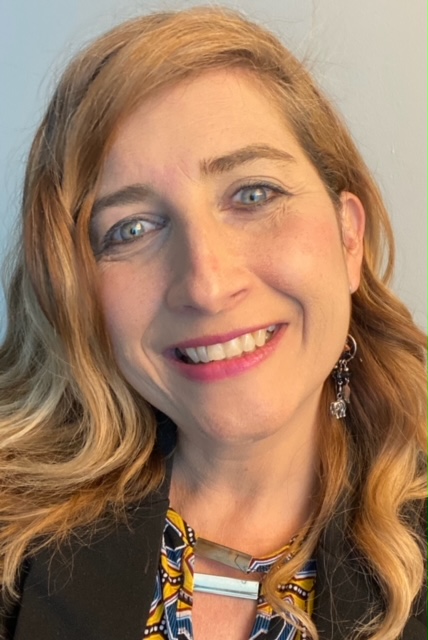Beatriz Valencia is the Office of Immigrant and Refugee Affairs Liaison for the Office of Equity and Inclusion for the City of Albuquerque. She is originally from Barranquilla, Colombia but grew up in a beautiful island in the Caribbean called San Andres. Since she has memory, Beatriz recalls to be part of diverse cultures, languages and religions. Her experience working with people from all walks of life and different nationalities has been continuous through her life.
Beatriz Valencia was the speaker for our IVLP group from Spain with the topic "The Role of U.S. Civil Society in the Integration of Immigrants". Read this interview with Beatriz to hear more about her perspective on her work. We started our conversation, asking if she could tell us something about herself. Her first response is as inspiring as the rest of the interview:
Our work is like the Ubuntu humanist philosophy based on loyalty and relationships between people. Nelson Mandela one time said:” Ubuntu means people are people through other people. Ubuntu acknowledges both the right of the responsibilities of every citizen in promoting individual and societal well-being”
Please share your thoughts of your experience this time connecting with the leaders from Spain.
The intellectual and cultural exchange with the Spanish delegates gave us a better insight as to how policies in Spain, and the U.S are similar, and how they differ. This included discussions on U.S policies that give immigrants accessibility to create business and jobs, allowing them to become self-sufficient. The Spanish delegates shared with us the work done by nonprofits in their country to help support immigrants. We discovered, we both faced similar issues of funding and capacity to fulfill the needs of these populations.
If our Spanish leaders had only one "takeaway" from your presentation, what would you want it to be?
We can achieve a great deal of work by developing best practices when working with the immigrant and refugee populations. For example, the language access resolution the City of Albuquerque passed in 2021. This resolution allows all City departments to contract with language access vendors to provide interpretation in-person or over the phone and, translation for documents and flyers for limited English proficient community members.
What are the three points you would like to highlight from your presentation?
- We can achieve a great deal of work through creativity, connections, language access, cultural competency, partnerships, and advocacy. For example, our Office of Immigrant and Refugee Affairs COVID response meetings where multiple organizations participated and share information and resources. We were able to use data and information in different languages to help reduce the barriers in communication with limited English proficient communities.
- All immigrants and refugees deserve to have their human rights respected regardless of their circumstances. Solutions should be identified and policies created based on input by those with lived experience. Immigration status should not be a barrier to one’s ability to access municipal services, such as affordable housing, education, access to medical and behavioral health services and safety. An example of our efforts to increase accessibility to resources, we launched a Rent to a Refugee Campaign with our community partner organization, Lutheran Family Services. This program encouraged landlords to rent to refugees. As a result, this initiative helped to housed most of the Afghan families.
- Data and storytelling are the drivers for planning, the developing of strategies and the implementation of activities, programs and policies.
Finally, a little imagination. What are the 3 biggest challenges that your profession faces in the next 10 years?
- The demand for immigration and refugee supports is going to increase due to climate change which will accelerate migration in many areas around the world including our City of Albuquerque.
- The geo-political environment may continue to negatively affect how the work can be effectively be completed.
- Finding sustainable funding streams to address the continuous humanitarian crisis can become one of the biggest challenges.
Note: Beatriz has an undergraduate degree in Pharmaceutical Chemistry, and she went to graduate school to Lehigh University for Health and Biopharmaceutical Economics. Later on, she worked in the education sector with community schools, and got involved with the non-profit and business sector as well. She is very well connected in the community and has a great deal of experience in language access, partnerships and community outreach.

Thank you so much, Beatriz, for sharing your story with us!

